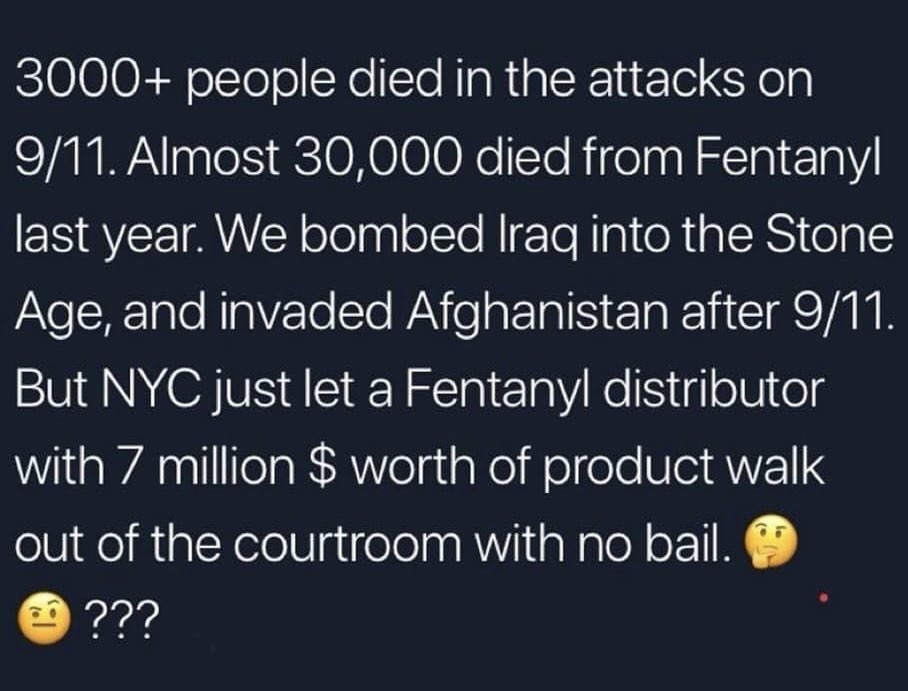To come back from COVID, NYC needs to tackle crime
By Michael Goodwin
New York Post
May 4, 2021
Good news in New York — the city that never used to sleep is finally waking up from its COVID freeze. Most capacity restrictions on restaurants, offices, churches, theaters and museums will end May 19th.
Before then, crowds at outdoor events can expand and subways will return to 24-hour service. The announcement from Gov. Cuomo’s office checks nearly all the important boxes — except one: Crime.
Nobody seems to be responsible for stopping the surge of murder and mayhem. Unless that’s fixed, the comeback will be less than advertised and the stampede for the exits will continue.
Shootings across the city tripled last week and are up 85 percent so far this year, and it’s not as if last year was a picnic. In the last two weeks, police say 99 people were shot. The pandemic and government closures put the city in lockdown in March of 2020, but crime didn’t take a holiday. It exploded and there is no automatic reason why it will suddenly stop just because more people are on the streets and riding the subways. In fact, it is guaranteed that, all else being equal, more people in public spaces will mean more victims of gunplay, robberies and assaults.
Cuomo’s announcement about lifting restrictions came with his usual double-dose of strangeness. First, he’s playing a childish game of one-upmanship with Mayor de Blasio and Sen. Chuck Schumer, both of whom have demanded he resign over the numerous sexual harassment allegations against him. The mayor said last week he wanted the city fully re-opened by July 1 and already started bringing back some 80,000 municipal office workers. Then Sunday, Schumer called for 24-hour-subway service, arguing the lockdown from 2-4 A.M. defied logic as ridership was growing and more people were out at night. In response, Cuomo raced to the front of the parade by lifting many of his arbitrary restrictions, including on subways, but then acted as if the MTA’s crime epidemic is not his problem, despite the fact that it’s a state agency.
“ ‘Come on the subway. It’s safe!’ Oh really. Have you been on the subway? Because I have, and I was scared,’ ” he said.
“ ‘Tell your child to ride the subway! It’s safe!’ Yeah, I’m not telling my child to ride the subway, because I’m afraid for my child.”
This was the same performance where Cuomo tried to persuade New Yorkers he suddenly cares about the elderly. He urged younger people to get vaccinated so they don’t “kiss your grandmother and wind up killing your grandmother.”
Someone that shameless can’t be embarrassed.

Still, somebody must take the lead on tackling crime and de Blasio played an unlikely role Monday. Normally a turn-’em-loose guy, the mayor praised the efforts of a Bronx judge to jail the accused vandal facing 42 charges in attacks on four Riverdale synagogues. Acting Bronx Criminal Court Judge Louis Nock initially set a $20,000 bail for suspect Jordan Burnette, even though Burnette’s court-appointed lawyer said he couldn’t because the 2019 state law Cuomo signed eliminated cash bail requirements for most misdemeanors and nonviolent crimes. Nock disagreed, saying the “shattering of glass” in the synagogues was a violent felony.
The decision was later overturned by another judge and Burnette was released, but de Blasio surprisingly said allowing bail in hate crimes should be considered “because hate crimes are such a profound challenge.”
His comments mark progress, but only up to a point. The initial idea behind the hate crime designation was to strengthen penalties, but the concept loses any real usefulness in an era when so many crimes have effectively been decriminalized. When there are no penalties otherwise, the hate crime designation is meaningless. Consider that the kind of vandalism Burnette is accused of routinely happens to businesses and private home owners, without necessarily involving racial or religious motives. To the victims, those crimes are frightening and expensive, yet any suspects arrested are almost immediately released. The answer is not to change the bail law only for suspects facing hate crime charges.
The answer is to give judges wider discretion in all cases where there are serious charges and real harm to victims, including hate crimes.
Common sense says the bail law changes of 2019 and the growing refusal to hold and prosecute many suspects have been a colossal failure. Crime has skyrocketed in New York in the last two years and the hard-won gains in public safety that took 20 years to achieve are being eroded before our eyes. We’ve seen enough to know the wave will not stop on its own.
If this experiment in excessive leniency were a trial for a new drug, ethics requirements would force the drug to be scrapped because so many patients are getting sick or dying. By the same token, it’s time the political puppets and the bleeding-heart activists pulling their strings come to their senses and worry more about the victims of crime than the perpetrators. Restoring consequences for law breaking is the most important challenge for the next mayor. He or she must hire more police, use them more effectively and build on that success by getting Albany to fix bail and sentencing laws.
At some point, all the pandemic restrictions will be lifted and, if the national economy is strong, the city could get back to boom times. But unless New York gets serious about combatting crime, the city will never be what it was.
1 comment:
Drug Dealer is a legitimate occupation in NYC these days.
Post a Comment